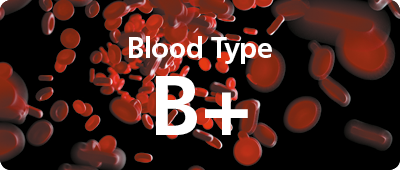Blood Types : Exploring the Significance of B+ Blood Type
Welcome to our comprehensive guide on blood types, where we delve into the remarkable world of B+ blood type. In this article, we’ll demystify the significance of blood types and focus on the unique qualities of B+ blood. As you read on, you’ll gain a deeper understanding of what makes B+ blood type special and its implications for your health.
Understanding B+ Blood Type

b+ blood type
Unlocking the Genetics Behind B+ Blood Type
Understanding your blood type is more than just a matter of curiosity – it can have real implications for your health. B+ blood type, one of the eight blood types within the ABO and Rh systems, carries its own set of characteristics and genetic traits. Let’s explore what B+ blood type is and how it’s determined.
Genetics of B+ Blood Type
Decoding the Inheritance and Traits of B+ Blood
To truly grasp the essence of B+ blood type, it’s essential to delve into the genetics behind it. Your blood type is determined by the presence or absence of specific antigens on the surface of your red blood cells. In the case of B+ blood, these antigens signify unique genetic traits that are inherited from your parents. In this section, we’ll decode the genetics of B+ blood type and uncover how it’s passed down through generations.
Health Implications
Exploring Health Considerations for B+ Blood Type
Understanding your blood type can offer valuable insights into potential health considerations. While B+ blood type is not associated with specific diseases or conditions, it does have some implications worth exploring. Individuals with B+ blood type may have certain advantages or considerations when it comes to health. In this section, we’ll delve into the health implications and factors to keep in mind if you have B+ blood type.
B+ Blood Type and Nutrition
Tailoring Your Diet to Your Blood Type
Diet plays a crucial role in overall health, and some believe that your blood type can influence your dietary choices. For those with B+ blood type, there are specific recommendations and considerations when it comes to nutrition. We’ll explore how your blood type may impact your diet and provide practical nutrition tips to help you make informed choices.
Blood Donation and B+
The Life-Saving Potential of B+ Blood Type
B+ blood type holds a special place in the world of blood donation. It is considered a universal donor for Rh-positive recipients, meaning it can be transfused to a wide range of people in need. If you have B+ blood type, your blood can save lives. In this section, we’ll discuss the significance of B+ blood type in donation, where you can donate, and the incredible impact your donation can have on the community.
Living with B+ Blood Type
Practical Tips for a Healthy Lifestyle
Living with B+ blood type doesn’t require major lifestyle changes, but there are some practical considerations that can optimize your well-being. In this section, we’ll offer tips and insights for individuals with B+ blood type to lead a healthy and balanced life.
Tips for Maintaining a Healthy Lifestyle with B+ Blood Type
Balanced Nutrition
Detailed recommendations on foods that complement the B+ blood type.
Fitness and Exercise
Tailored exercise advice for individuals with B+ blood type.
Stress Management
The role of stress and techniques for managing it effectively.
Regular Check-Ups
The importance of routine health check-ups and screenings.
Community and Support
Connecting with others who share your blood type.
Common Questions About B+ Blood Type
1. Is B+ blood type rare?
Answer: B+ blood type is relatively common and is found in about 37% of the population. It is not considered rare.
2. Can B+ individuals receive any blood type in transfusions?
Answer: B+ individuals can generally receive B+ and O+ blood types for transfusions, but it’s essential to match blood types as closely as possible for safety.
3. Are there any health risks associated with B+ blood type?
Answer: B+ blood type itself is not associated with specific health risks. Individual health risks depend on various factors, including genetics and lifestyle.
4. Can B+ blood type change over time?
Answer: No, your blood type does not change over time. It remains constant throughout your life.
5. How can I find out my blood type if I don’t know it?
Answer: You can discover your blood type through a blood test conducted by a healthcare professional or through a home blood typing kit.
6. Is B+ blood type more prevalent in certain regions or ethnicities?
Answer: B+ blood type frequencies can vary among different populations, but it is found in people of various ethnic backgrounds.
7. Can B+ individuals donate blood to any blood type recipient?
Answer: B+ individuals can donate to Rh-positive recipients, but it’s best to match blood types for the safest transfusions.
8. Are there any dietary restrictions for B+ blood type individuals?
Answer: While there are dietary recommendations for different blood types, they are not scientifically proven. It’s essential to maintain a balanced diet.
9. Can B+ blood type individuals be bone marrow donors for other blood types?
Answer: Bone marrow donation typically requires a close match of blood and tissue types, so it’s not solely dependent on blood type.
10. What are the potential advantages of having B+ blood type?
Answer: B+ individuals can be universal donors for Rh-positive recipients, which means their blood can be used in emergencies when matching blood types may be challenging.
Conclusion
In this article, we’ve explored the fascinating world of B+ blood type, from its genetic underpinnings to its implications for health and the remarkable role it plays in blood donation. We hope this comprehensive guide has provided valuable insights and answered your questions about B+ blood type.




